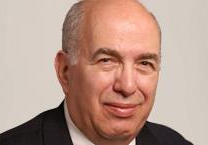Are Dividends Better Than Buybacks?
 We’ve all heard about the mountains of cash that are just sitting on corporate America’s balance sheet, stashed away in bank accounts overseas earning next to nothing in interest. What should companies do with all that cash they have on hand?
We’ve all heard about the mountains of cash that are just sitting on corporate America’s balance sheet, stashed away in bank accounts overseas earning next to nothing in interest. What should companies do with all that cash they have on hand?
Corporations have only a few options. They can pay down debt if they have any outstanding, but ideally, they invest in projects that have a rate of return that is greater than their cost of capital. This option is what companies try to do all the time. The problem is that many times, there aren’t any projects available to them that can reasonably be expected to earn a rate of return that is greater than their cost of capital. At the very least, they should look for projects that have a positive net present value.
What happens if they can’t find any such projects?
If no other opportunities are available for a company to deploy the cash, it should return the cash to the shareholders, but what is the best way to do this? Should it pay out a dividend to the current owners of the stock or buy back its own shares to reduce the number of shares outstanding and increase earnings per share?
A few issues definitely need to be considered when determining which of these two alternatives would be best for shareholders.
We’ll take a look at an imaginary company called “Orange.” And let’s say this company, Orange, makes a really cool product called a “You-pad” and everybody in the world just has to have one. As a result of this wonder gizmo, Orange is very profitable, has no debt outstanding, and has ended up with one of the aforementioned mountains of cash in the amount of $1 billion.
First, let’s take a look at the implications of Orange deciding to pay out a special one-time dividend. That’s simple enough; if it has 100 million shares outstanding, it could pay out a special $10 dividend to everyone. Problem solved. From the shareholder’s point of view, he gets the cash back right away, and a dollar today is worth more than a dollar in the future because of the time value of money.
In any event, the shareholder gets his money now and can choose to do with it what he wishes. One of the things he might do is buy more shares of Orange, in effect creating his own homemade share repurchase, but he could also allocate the returned cash to any other stock or asset class he desires. The very fact that he has those choices available to him has value in and of itself.
The downside of getting the cash back now, in the current period, is that taxes will have to be paid now and cannot be deferred into the future—a high-class problem but a consideration nonetheless. That issue brings up an important point: Dividends and capital gains may get taxed at different rates. If the difference between the two rates of taxation is huge, then there really isn’t a need for careful analysis.
If dividends get taxed at 90% while capital gains get taxed at 5%, shareholders will obviously prefer the lower tax rate on capital gains and will, therefore, prefer that the excess cash be used to buy back shares.
Let’s assume, for argument’s sake, that taxes and capital gains are, in fact, taxed at the same rate. Taxes should never be the only thing that drives investment decisions, but they are an important consideration because investors are looking to maximize their “real returns,” or after-tax, after-inflation returns.
What if instead of paying out a dividend, the company decides to repurchase its own shares on the open market? Share buybacks increase EPS and share price. And although buybacks are taxed as a capital gain when sold, the choice of when to sell them is up to the shareholder. Let’s say Orange is going to earn $100 million, or $1 per share, this year. Because of its growth rate and future earnings prospects, the stock is trading at a P/E multiple of 100 times earnings, or $100 per share. How many shares of stock could the company buy back with the $1 billion it has in cash?
According to my calculator, Orange could buy back 10 million shares. That would leave it with 90 million shares outstanding after the buyback. Now, just because the company buys back shares doesn’t mean people are going to stop buying You-pads, so it will still earn $100 million this year. But with only 90 million shares outstanding, its EPS will now be $1.11.
Since it is still growing just as fast, the market should still be willing to pay 100 times earnings, which would mean a price of $111, or about 11% higher, and more capital gains for investors. Note that the dividend of $10 per share on a $100 stock is a yield to shareholders of 10%, similar to the return associated with the higher per share earnings. Investors get to determine when they pay those capital gains by deciding when they want to sell shares, now or in the future.
So, which do you think is better? Let me know on Twitter at @SconsetCapital or in the comments below.



Since capital gains are tax deferred the share buyback is always the best option. If I want the cash, I can always just sell some shares and maintain the same % ownership in the company.
A bit of a counterpoint to Emmanuel’s position that share buybacks are “always” the best option.
When a company buys back shares which are overvalued, it is questionable the actions are done in the best interest of the shareholders.
Buybacks of Netflix in mid-July of last year, or buybacks of Zynga at any time would not have worked out so well for shareholders.
I would have rather take the tax hit of a dividend than the massive loss of capital value.
I am also skeptical of share buybacks by companies who are serial stock-option issuers (Yes, Cisco, you’re a prime example.) Buybacks by such companies do not enhance EPS, rather they are attempts to preserve current oustanding share counts, thus preserving current EPS. Such actions tend only to provide value to those receiving the options.
KB points out that share buybacks make much less sense when the shares are overvalued. But that raises an obvious question: if KB thinks that the company’s shares are overvalued, why does he own them? And if he believes that serial stock option issuers like Cisco are needlessly destroying value, then why does he own shares of Cisco?
I don’t own Cisco, nor Netflix, nor Zynga. Never said I did. I was simply using them as examples for my position on share buybacks vs. dividends.
You need to read more carefully.
“Share buybacks increase EPS and share price.” How sure of the latter are you? If EPS growth is low-quality – driven by fewer shares outstanding, just for example — you might expect offsetting P/E contraction.
Taxes may be a red herring here…the vast majority of institutional investors are tax free or tax deferred entities (I have seen published numbers as high as 80%+ of AUM). Depending on the specific makeup of a company’s shareholders, it may be irrelevant how the two are taxed.
The fact remains that it is impossible to pay the rent with share repurchases. Dividends are cash. Period. If shareholders want to create liquidity with value created by share repurchases (even assuming that the share repurchases add value–see comments from KB and MH above), the ONLY way to do that is to sell the shares. Dividends create liquidity without incurring transactions.
I think these surplus funds should be given away as dividends. If management needs extra funds for new project then they should seek funds from the financing institutions or investors. In this way the investors will be kept more informed about major decisions management makes to invest the funds and the investors will have better control over the use of their funds by management. The problems of conflict of interest of management can be better managed. Those investors who donot want to venture into new projects will not reinvest their dividends effectively reducing their shares in the company. Those inestors who are bullish will invest in new project at premium thus benefiting existing shareholders. I think its a win win situation.
Sir, u are taking estimate of P/E ratio to be 100 times but wat if the P/E ratio fluctuates given the dynamics of market condition? I think dividend distribution is more appropriate bcoz it not only enhances shareholder’s confidence in the co. but also beneficial to co. in the long run as more and more people will want to become shareholders of the Co. thereby increasing the mkt. value of share. Earning in the future can be fluctuating and can hit the roadblock sometimes looking at the condiitons of the mkt.
Agree with kbs point. If the company is buying back back shares it should also have the ability to make a judgement call on whether the stock is over/under valued. Else just give the money back in the form of dividends.
Even warren buffet makes a similar point wrt ibm in this years letter to shareholders.
My other issue is how many are people are really good at valuations. No matter how hard one you try very few can keep perception,recent trend and emotion out of valuation.
All things equal if a stock is fairly valued and tax rates are neutral , the company must go for a buy back as eps of not just the current year but also future year increases.
Are you sure about those yield/return calculations at the end of the article (11% for buyback versus 10% for dividend)? How will the company be able to buy back all 10 million shares at $100 each since it is that case that with each share that is bought back, the remaining shares outstanding increase in value until you are left with 90 million shares at $111 each? I.e.: why would the person selling the 9,999,999th share to the buyback accept a price of $100 when he could instead hold on to it and sell it into the open market at $111?
I believe that once you adjust for this, you will find that investors should be indifferent between buybacks and dividends (should be 10% in either case).
Just because the company buys back shares does not necessarily mean that it will be re-rated in the market as in the example above. In fact investors may take a dim view of the company in that it has no positive NPV projects to invest in, thus marking down the earnings multiple they are willing to pay.
The EPS increase was “paid for” by the shareholders. What’s most important is how much cash was spent to buy the increase in EPS. Value is added when you pay less to buy more. I wrote an article on this here….
http://seekingalpha.com/user/6337431/instablog